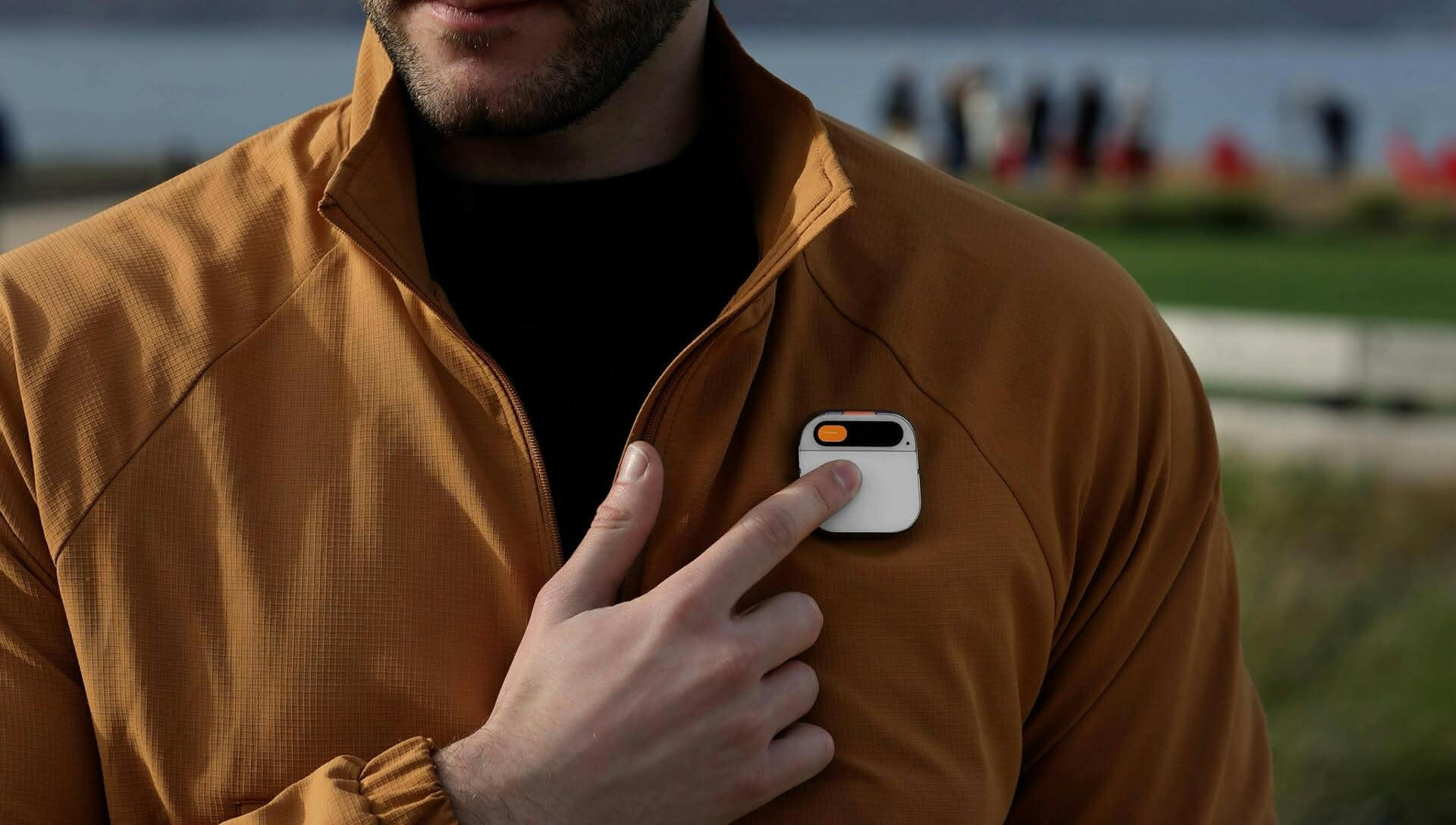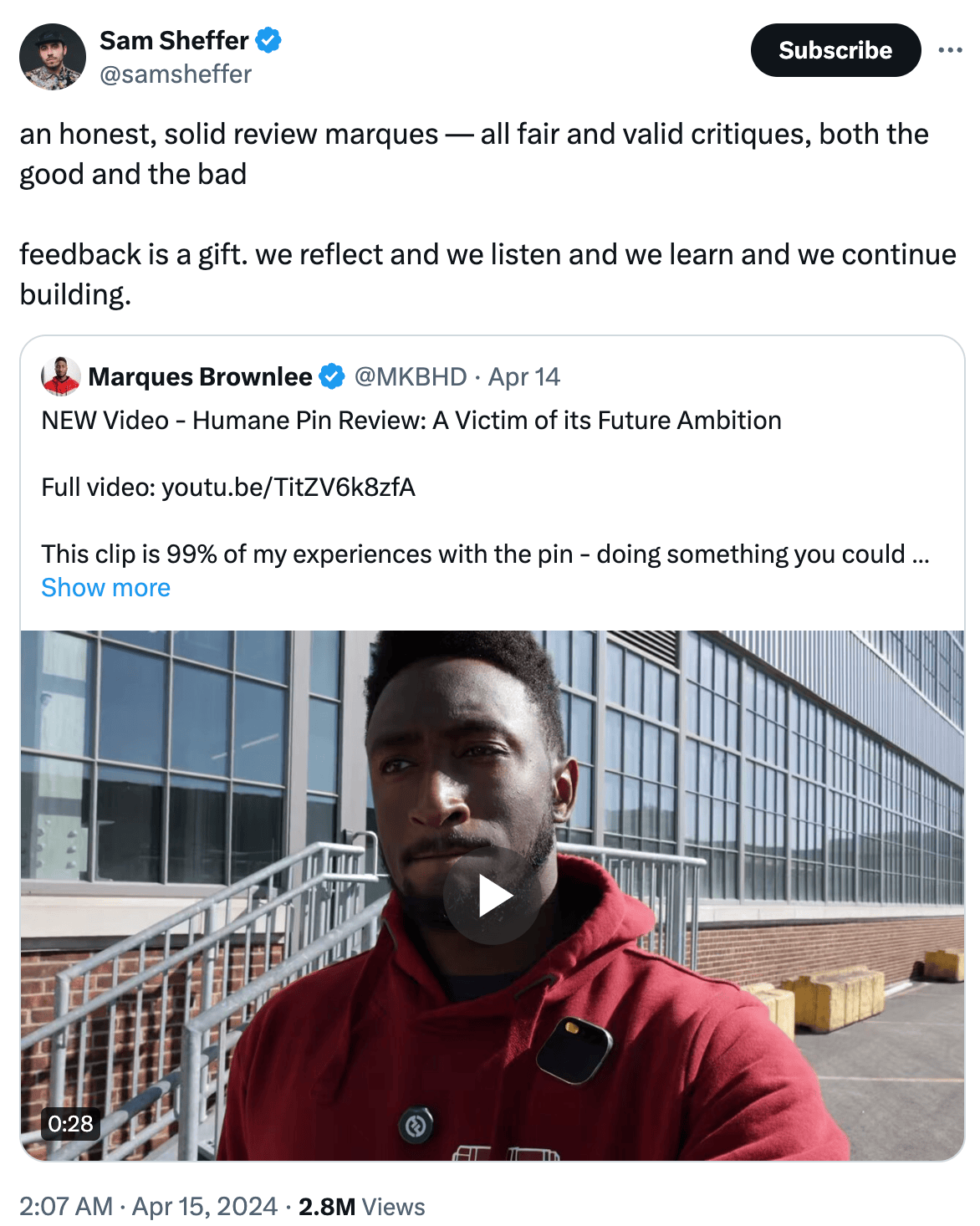PR crisis for Humane and its AI Pin
The idea is simple but the execution is hard. This pin is your personal assistant and can be worn on clothing so you can reach it anytime. Or at least that’s the promise.

Marques Brownlee called it “The Worst Product I’ve Ever Reviewed… For Now”.
https://www.youtube.com/watch?v=TitZV6k8zfA
This led to a curious result. Some of us are used to reading bad reviews that go viral, and know what to expect: a reaction from the company to improve it for their customers. Humane did that when Sam Sheffer, Head of New Media, reposted the review.

On the other hand, Marques Brownlee was facing backlash from others who claimed he was killing the company. His response seems to have been along the lines of “people trust me to write honest reviews”. Years back, before Facebook, mostly, it would be unthinkable to hear the crowd turn on a reviewer.
Marques does need YouTube to give his content more reach, and fueling controversy is a sure way to reach the goal. But even if that is the case, it isn’t enough to support the argument of the tech-audience of him wanting to kill a company.
Or maybe the company is worth killing. Theranos, Juicero, and recently Cognition Labs should have gone the way of the floppy disk long ago. Instead, they amassed large sums of investment and unwarranted attention.
A company’s product can fail any time, but once its reputation is damaged, there is no solution.
Most of the problems with the Humane Pin came from the fact that it needs an internet connection to query the AI engine on the cloud. And, coincidently, Apple released a series of AI Models that can run on the person’s device.
Apple AI Open Source Models
Apple has released several open-source large language models (LLMs) named OpenELM, designed to run on-device rather than through cloud servers. Available on the Hugging Face Hub, these models are aimed at improving accuracy and efficiency using a layer-wise scaling strategy. Apple has provided the complete framework for training and evaluation, including code, training logs, and multiple versions. The company hopes this will lead to faster progress and more reliable results in the natural language AI field.
Even without these models, the Open Source community has been working on getting LLMs to run on their spare computers. Rui Carmo is one of the bloggers who is working on this and sharing progress as he goes along.
Dify.AI
This is a free platform to develop AI workflows and Agents, with little to no coding.
It’s not the prompting, or the endless looping and filtering, or even the fact that many agent frameworks actually generate their own prompts to a degree where they’re impossible to debug–it’s the fact that the actual useful stuff is still hard to do, and LLMs are still a long way from being able to do it.
They do make for amazing Marketing demos and autocomplete engines, though. — @Rui Carmo on Tao of the Mac
SocialNow, the conference on how to optimise digital platforms
It’s in Lisbon on the 16 & 17 May.
Most times our tech decisions tie us to future problems. Setting up the software for knowledge management and collaboration can be riddled with these pitfalls. At SocialNow, companies step up to share their approaches and insights.
(All we really need is someone to handle the tech while we focus on the content and the people.)
Your TikTok video for this week
Typically those people go into problems with the mindset that “I may not know how to solve this yet but I know that I can figure it out and I know that I’ll be able to do it”.
https://www.tiktok.com/@drjacobsanthouse/video/7359971507864472875?_t=8lrOKmnSyCP&_r=1
Or you can be curious and wonder how far you can go, how much can you chip away from the problem or the mountain you face. And with a few friends giving a hand, you find out you’ve gotten much further than you dreamt.

